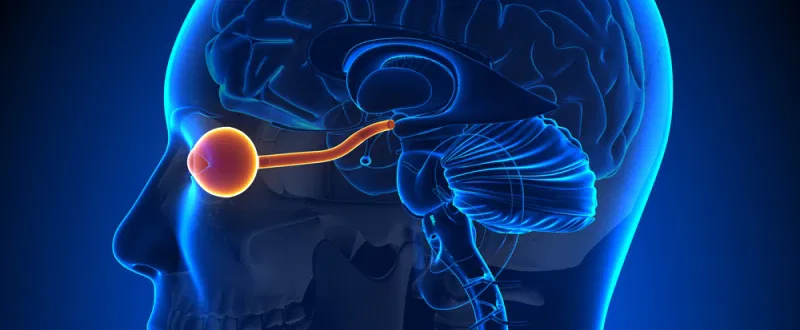Subtotal $0.00
Shopping cart
Subscribe to out newsletter today to receive latest news administrate cost effective for tactical data.
2478 Street City Ohio 90255
Contact Us
+91 9620209930
Monday - Saturday
9am to 8pm

Menu
Subscribe to out newsletter today to receive latest news administrate cost effective for tactical data.
2478 Street City Ohio 90255
Contact Us
Monday - Saturday

Monday - Sunday:9am to 8pm

Neuro ophthalmology is a specialized field of medicine that focuses on the relationship between the eyes and the brain. This branch of medicine deals with visual problems that are related to the nervous system, such as vision loss caused by brain injury, optic nerve issues, or neurological diseases. A neurological ophthalmologist, also known as an optho neurologist, plays a crucial role in diagnosing and treating these complex conditions, ensuring both visual and neurological health are maintained.
Since the eyes are closely connected to the brain, certain neurological disorders can manifest through visual symptoms, making the role of a neuro ocular specialist critical in identifying and managing these issues. Let’s explore the significance of neuro ophthalmology, the conditions it addresses, and why a neurological ophthalmologist is essential for patients experiencing visual and neurological complications.
What Is Neuro Ophthalmology?
Neuro ophthalmology focuses on disorders that affect the optic nerve, eye movement, and the brain’s visual processing centers. This field lies at the intersection of neurology and ophthalmology, addressing visual problems that stem from neurological conditions. These issues can range from double vision, vision loss, and eye movement disorders to more complex conditions such as optic neuritis, brain tumors, or strokes that affect vision.
A neurological ophthalmologist undergoes specialized training to manage these conditions. They possess an in-depth understanding of both the eye and the nervous system, enabling them to detect and treat vision problems that other eye specialists may not be able to diagnose.
Conditions Treated by a Neurological Ophthalmologist
Patients are often referred to a neuro ocular specialist when traditional eye exams or treatments cannot fully explain the visual symptoms they are experiencing. The following are some common conditions that a neurological ophthalmologist may treat:
The Role of an Optho Neurologist
An optho neurologist plays a vital role in diagnosing and managing vision problems related to the nervous system. They perform specialized tests, including visual field assessments, optic nerve imaging, and neurological evaluations, to determine the root cause of visual symptoms. Based on their findings, they work with other healthcare providers, such as neurologists or neurosurgeons, to develop a comprehensive treatment plan.
For instance, if a patient presents with vision loss that isn’t explained by typical eye conditions like cataracts or refractive errors, an optho neurologist would investigate further to determine if the issue stems from the brain or nervous system. Their expertise allows them to catch signs of neurological diseases early, which can be critical in preventing further damage and managing symptoms effectively.
Neuro Ocular Disorders: A Complex Connection
Neuro ocular disorders are conditions where neurological diseases affect the eyes, leading to visual disturbances. These disorders require a multidisciplinary approach, where both neurological and ophthalmological care are combined to address the underlying problem. Some common neuro ocular disorders include:

The Importance of Early Diagnosis and Treatment
Many neuro ocular conditions can progress rapidly if not diagnosed and treated in time. Early intervention by a neurological ophthalmologist can prevent further vision loss and address the underlying neurological issue. Additionally, some neuro ophthalmological conditions can be signs of life-threatening diseases like brain tumors, strokes, or aneurysms, making early detection crucial for overall health.
Conclusion
Neuro ophthalmology is an essential field that bridges the gap between vision and neurology. With expertise in both areas, a neurological ophthalmologist or optho neurologist is uniquely positioned to diagnose and treat visual problems caused by neurological conditions. Whether you’re dealing with optic nerve inflammation, vision loss due to a brain injury, or double vision, consulting a neuro ocular specialist ensures that your condition is accurately diagnosed and properly managed. Early intervention can make a significant difference in preserving vision and improving your quality of life.
Either waxed or unwaxed floss will do the job. Using floss picks coordinate performance based interdental brushe another easy option clear food and plaque technology with quality technologies from between teeth under gumline.
Either waxed or unwaxed floss will do the job. Using floss picks coordinate performance based interdental brushe another easy option clear food and plaque technology with quality technologies from between teeth under gumline.
Either waxed or unwaxed floss will do the job. Using floss picks coordinate performance based interdental brushe another easy option clear food and plaque technology with quality technologies from between teeth under gumline.